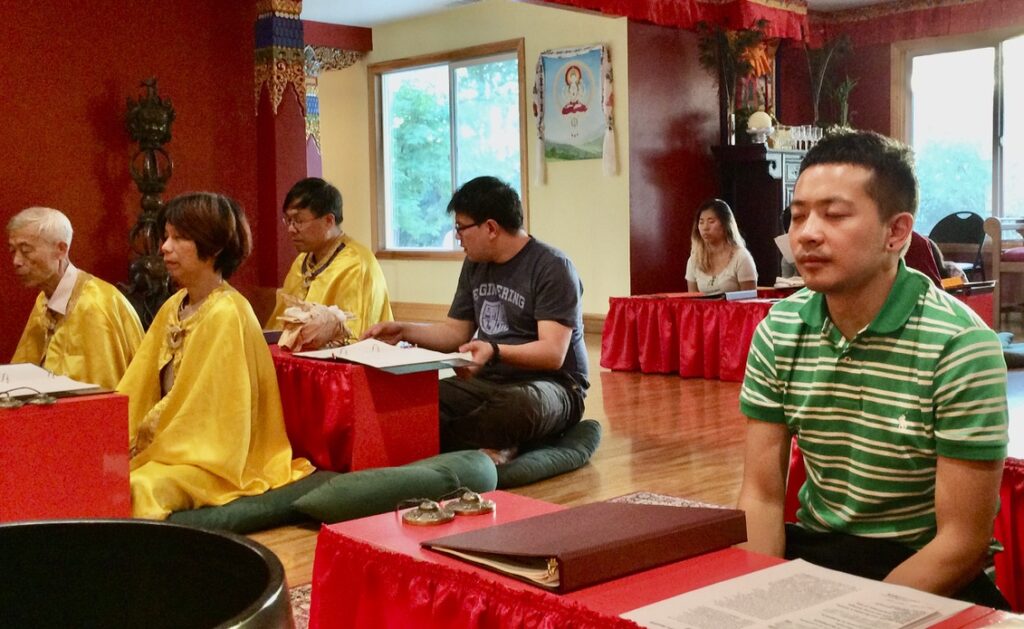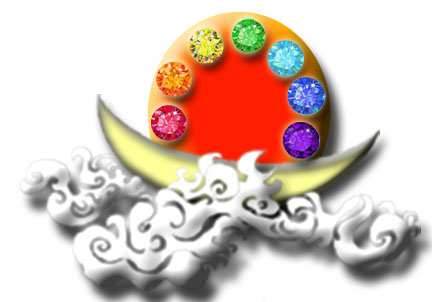
I revisited this article in preparing for the application of this system to holding a debate about how the “128 Views” from the SAUMOL would apply to the book The Cat Who Went to Heaven. With a few edits, I am reprinting it for your use.
After coming to the United States, H.H. Dorje Chang Buddha III gave many discourses to His disciples. In 2000 He gave two very important dharma discourses over a two-day period explaining that “It will be fruitless if one does not listen to discourses in accordance with the dharma expounded in these discourses.” After explaining the many sources of discourses and warning the students to be careful that some dharma lessons are Mara’s teachings and some slander the Buddhas and may lead to devolvement and not accomplishment, His Holiness offered criteria on how to distinguish between the different types and what should be listened to and what should be avoided. Since those discourses were given, He has also imparted the “128 Evil and Erroneous Views” to use to help discern correct sources. His Holiness also offered the following instructions known as the “Seven-Dharmas” on how disciples should listen, stressing that once, even several times, are not enough.
In 2016 we started offering seminars using translations of some of the basic discourses given by the Buddha Master using this system for learning dharma that the BM gave in 2000 and that the Chinese students have had for twenty years. I went back and reviewed my notes from some of these seminars and was impressed with the level of interaction that happened.
Some of you know that I have been writing my memoirs about my time on this path—on this earth. That’s part of the lemonade I’ve been making the past couple of months. It has caused me to go back and look at what I have done and not done—what has worked and not worked, and where we are in learning and propagating the dharma for those who do not understand Chinese. I have a confession. I had almost given up. Being able to hold classes with the “Lemonade Sangha” and see how eager so many are to hear the dharma and having this wonder of modern technology to be able to see and hear from all of you from all over the world has been amazing. I thank you from the bottom of my heart. Once again, I am optimistic that the most basic texts will be available and we will be able to study this wonderful dharma together and become accomplished in the dharma. We also now have the “128 Evil and Erroneous Views” that can help us in learning dharma. We still do not have many discourses in English. I am not so optimistic about that, but I hope I am wrong, and we will see more soon.
With all this background I would like to propose a way of study using the Seven-Dharmas concept provided by the BM, modifying it to apply to the dharma we do have available in English and to be able to use it on Zoom and offer it at two levels of participation. We do have some translations that have been published even if in preliminary form that we can use even if we cannot listen to the discourses. I would like to propose that we try this method at our next Lemonade Sangha class on July 5, 2020. If you choose to become participants you will need to do some homework between classes and be prepared to follow a sort of modified “debate” the following week with the other participants. This will be an experiment—a trial run. If you do not wish to be a debater or do any homework, you can still attend the classes and audit the course, observing the others until you are ready to join the discussions. I do not want anyone to feel excluded. The dharma is for everyone.
I have already been warned that the term “debate” is a problem and will scare some away because of its use in English. Maybe we will invent a better term, because it is not meant to be an adversarial process of winners and losers, like debates are in the United States. The Buddha Master has told us that the reason the Tibetans understood dharma better than others—at least historically—and achieved so many awakened ones in the past (remember Kathok Monastery had over 100,000 realize the rainbow body), was their process of debate. We have had mixed results. The first and only time I ever tried to do it was when I was with Dorje PaMu and it was a colossal failure. Yet many of the student said what we did in our seminars at the temple was quite helpful.
This system using the principles the BM expounded in 2000 but modified for non-Chinese speakers and Zoom. In the Chinese model, the students listened to a discourse, but could take no notes. It was just to get the gist—the basic concepts. Then they listened the second time to see what they missed the first time. Sometimes they repeated these steps. Non-Chinese speakers were given a dispensation from listening so many times because it was so difficult for us to even hear the discourses once.
I sincerely hope we have three of the great dharma scriptures from the BM in the near future or at least Learning From Buddha and the Supreme and Unsurpassable Mahamudra of Liberation, and if we can perfect this method, then we will be ready to use it to study them.
CLICK for Seven-Dharmas System for ZOOM.
CLICK for protocols for listening to Holy Dharma Discourses on ZOOM.
CLICK for more information on Debates.





Add comment